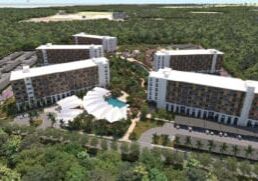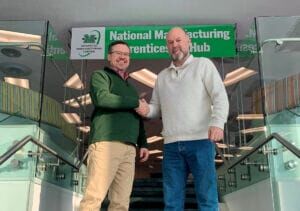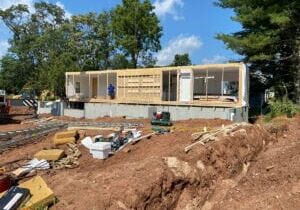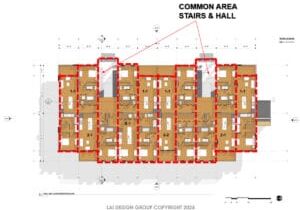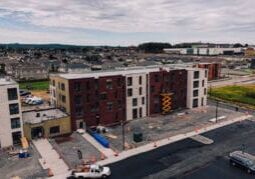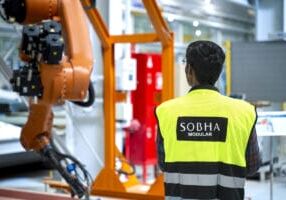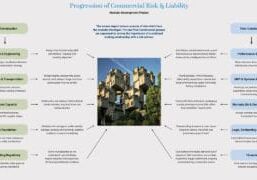MBI Welcomes R.I. Group Founder & President Salvatore Tafuro to the Industry’s Hall of Fame
In 1973, Salvatore Tafuro, only in his twenties and already supporting a family of three children, set out to realize his entrepreneurial dream. From a humble garage in Leverano, in the heart of Salento, he began producing metal structures and aluminum fixtures for the construction industry.
His early focus on modular solutions laid the foundation for what would become a global leader in modular construction. Over the decades, his small workshop grew into R.I. Group, which today is recognized as one of the world’s leading companies in modular system design and construction.
Employing over 200 people globally and backed by a team of experts with entrepreneurial drive, R.I. Group has completed projects across Italy, Africa, America, Australasia, Europe, and the Middle East.
This worldwide footprint underscores Tafuro’s visionary leadership in adapting and expanding the company over more than 50 years.
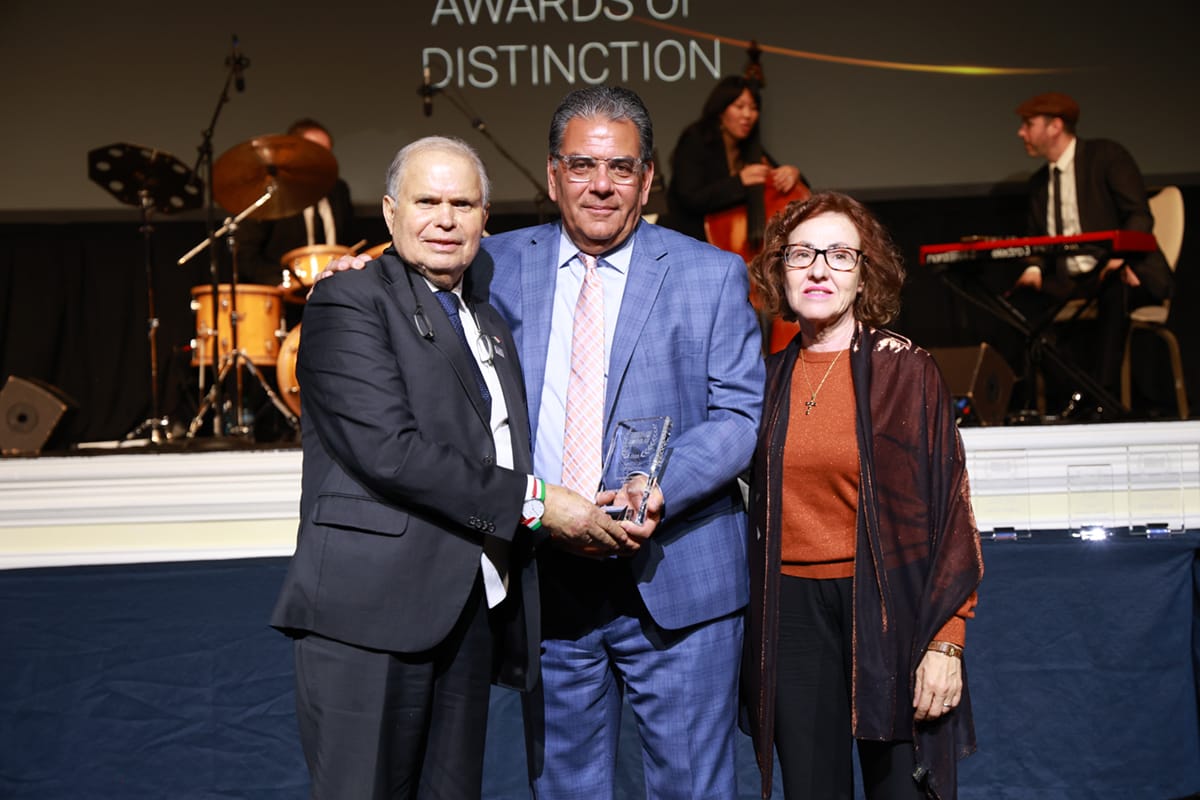
Salvatore Tafuro and his wife accept an award at MBI's 2025 Awards of Distinction ceremony on behalf of R.I. Group.
One of the most critical moments in the company’s history came during the COVID-19 lockdown, when NATO’s NSPA requested R.I. Group to develop mobile field hospitals and modular bio-containment solutions.
These innovations were vital in saving lives during the pandemic, showcasing the company’s agility and innovative capacity in responding to global emergencies.
These milestones, along with strong partnerships with governments, international organizations like the UN, the European Union, and NATO, highlight the undeniable success of R.I. Group.
“During my career,” says Tafuro, “there have been several significant milestones I’m particularly proud of; each of them underscore the resilience required to deliver transformational solutions. One of the key moments was securing our first contract with the United Nations, which marked the beginning of an incredible journey. Another standout experience was the mission in Afghanistan, which included the construction of a military camp in extremely difficult conditions. Operating in a dangerous and war-torn environment, we faced numerous logistical and security challenges, making the successful completion of the project a major achievement. Lastly, securing my first contract with Leonardo for the development of mobile modular telescopic towers was a pivotal accomplishment, as it opened the door to several fruitful collaborations that followed. Each of these moments has shaped my career and contributed to my growth.”
Operating out of Puglia, Italy - a region more associated with agriculture and tourism than with industrial innovation - Salvatore Tafuro has turned R.I. Group into a shining example of industrial ingenuity. The company’s patented technologies include advanced bio-containment units, modular energy systems, and remote-controlled border control towers, each of which reflects a deep commitment to Italian design tradition and a forward-looking approach to solving complex global problems.
One of its most notable innovations is the development of the world’s first telescopic armored defense tower, a product that has been widely recognized and even envied internationally. This, along with other innovations like energy-autonomous modular housing, has garnered recognition from the Modular Building Institute itself, cementing R.I. Group’s status as a leader in the field.
R.I. Group has always placed corporate social responsibility at the heart of its operations, exemplified through its crisis-response activities both in Italy and abroad. During global emergencies, the company’s commitment to national welfare often takes precedence over internal economic interests.
The company’s engagement extends into the civil sector, supporting cultural and charitable initiatives, such as its sponsorship of Lecce Football Club, and contributions to the Umberto Veronesi Foundation. Furthermore, R.I. Group has donated modular churches to communities in Lebanon, Haiti, and Afghanistan, highlighting the company’s humanitarian efforts.
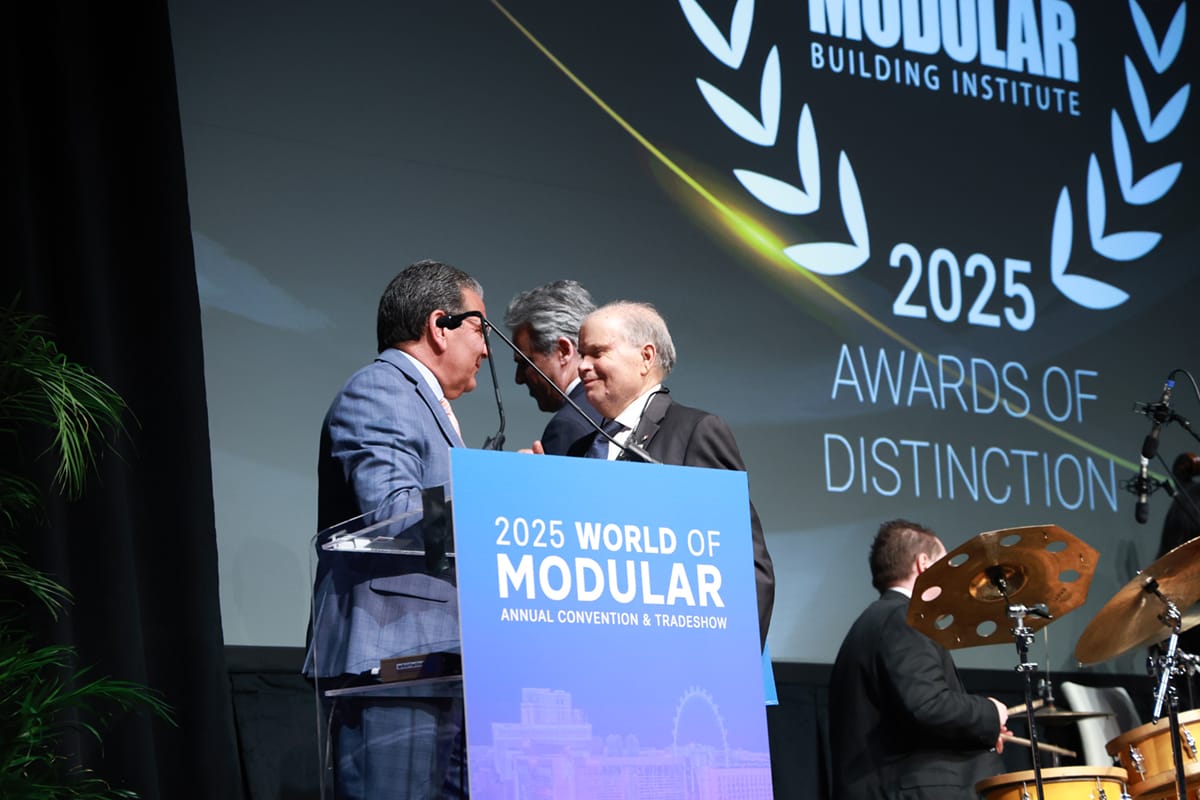
Salvatore Tafuro was introduced by outgoing MBI Board Chair John Buongiorno.
In a particularly notable achievement, Salvatore recently co-founded “Hospitals Without Borders,” a non-profit organization focused on addressing healthcare access disparities through modular medical facilities.
“R.I. Group is focusing significantly on modular healthcare solutions and developing modular education and training programs as key elements of its future strategy. We believe that modularity is the key to creating flexible, scalable, and efficient medical infrastructures that can adapt to the rapidly changing needs of healthcare systems worldwide. This approach allows us to deliver innovative solutions that can be deployed quickly and effectively, whether for urban hospitals, rural clinics, or mobile units.
“We recently established the Hospitals Without Borders Foundation in collaboration with other high-level partners. This initiative is dedicated to bringing modular medical solutions to regions affected by conflicts or humanitarian crises. Our mission is to ensure that even in the most challenging circumstances, people have access to the medical care they need.”
Salvatore Tafuro’s legacy is not only defined by past achievements but also by a forward-looking vision that promises continued innovation and leadership in the modular construction industry.
“Through the combination of cutting-edge technologies and a global network of expertise, our goal is to make a lasting impact in the most critical contexts and inspire future generations of modular architects and engineers to develop solutions that better contribute to the well-being and progress of humanity.”
“Being inducted into MBI’s Hall of Fame is a profound honor and a testament to the hard work, dedication, and passion I’ve poured into this field over the years,” concludes Tafuro. “It signifies not just personal achievement but also the collective success of the teams, mentors, and colleagues who have supported and inspired me along the way. For me, this recognition represents a commitment to continue striving for excellence, overcoming challenges, pushing boundaries, and contributing to the growth and innovation in our industry. It’s incredibly humbling to join a group of such distinguished individuals whose accomplishments I deeply admire.”
More from Modular Advantage
How Stack Modular Is Using AI to De-Risk Mid- to High-Rise Modular Construction
Artificial intelligence is no longer a future concept in modular construction—it is already reshaping how complex buildings are evaluated, designed, and delivered.
Gearing Up for the 2026 World of Modular
The Modular Building Institute (MBI) is bringing its global World of Modular (WOM) conference and tradeshow back to Las Vegas in April, and with it comes some of the industry’s best opportunities for networking, business development, and education.
New High-Rise Modular Apartment in Abu Dhabi Points Toward the Future of Multifamily Construction
Eagle Hills International Properties chose the BROAD Holon Building for a 16-story market rate apartment building in Zayed City, a central business district of Abu Dhabi. The project highlights the potential of the Holon system of volumetric modular construction to accelerate housing delivery.
MBI Announces First Ever Industry Apprenticeship Program in Collaboration with Marshall Advanced Manufacturing Center
MBI recently agreed to partner with Marshall Advanced Manufacturing Center (MAMC) to provide bona fide USDOL-approved apprenticeship programs for the industry.
AoRa Development Aims for New York’s First Triple Net Zero Building Using Modular Methods
More cities are providing funding for newer infrastructure projects as long as they meet sustainability requirements. This is how modular can fit the bill, thanks to its lower waste production.
Developers and Designers: Lessons Learned with Modular Design
Modular construction is attractive to many developers because sitework and module construction can occur simultaneously, shortening the schedule and reducing additional costs.
UTILE: Putting Modular Building on a Fast Track
In Quebec, UTILE is taking the lead in creating affordable modular buildings to help decrease the student housing shortage. During the process, the company discovered what it takes to make the transition to modular building a success.
Sobha Modular Teaches Developers How to Think Like Manufacturers
With its 2.7 million square foot factory in UAE, Sobha Modular is bringing both its high-end bathroom pods to high-end residences to Dubai while developing modular projects for the U.S. and Australia.
RoadMasters: Why Early Transport Planning is Make-or-Break in Modular Construction
In modular construction, transportation is often called the “missing link.” While it rarely stops a project outright, poor planning can trigger costly delays, rerouting, and budget overruns.
Navigating Risk in Commercial Real Estate and Modular Construction: Insights from a 44-Year Industry Veteran
Modular projects involve manufacturing, transportation, and on-site assembly. Developers must understand exactly what they are responsible for versus what they subcontract. Risk advisors should research the developer’s contractors, subcontractors, and design-build consultants—especially the modular manufacturer.

